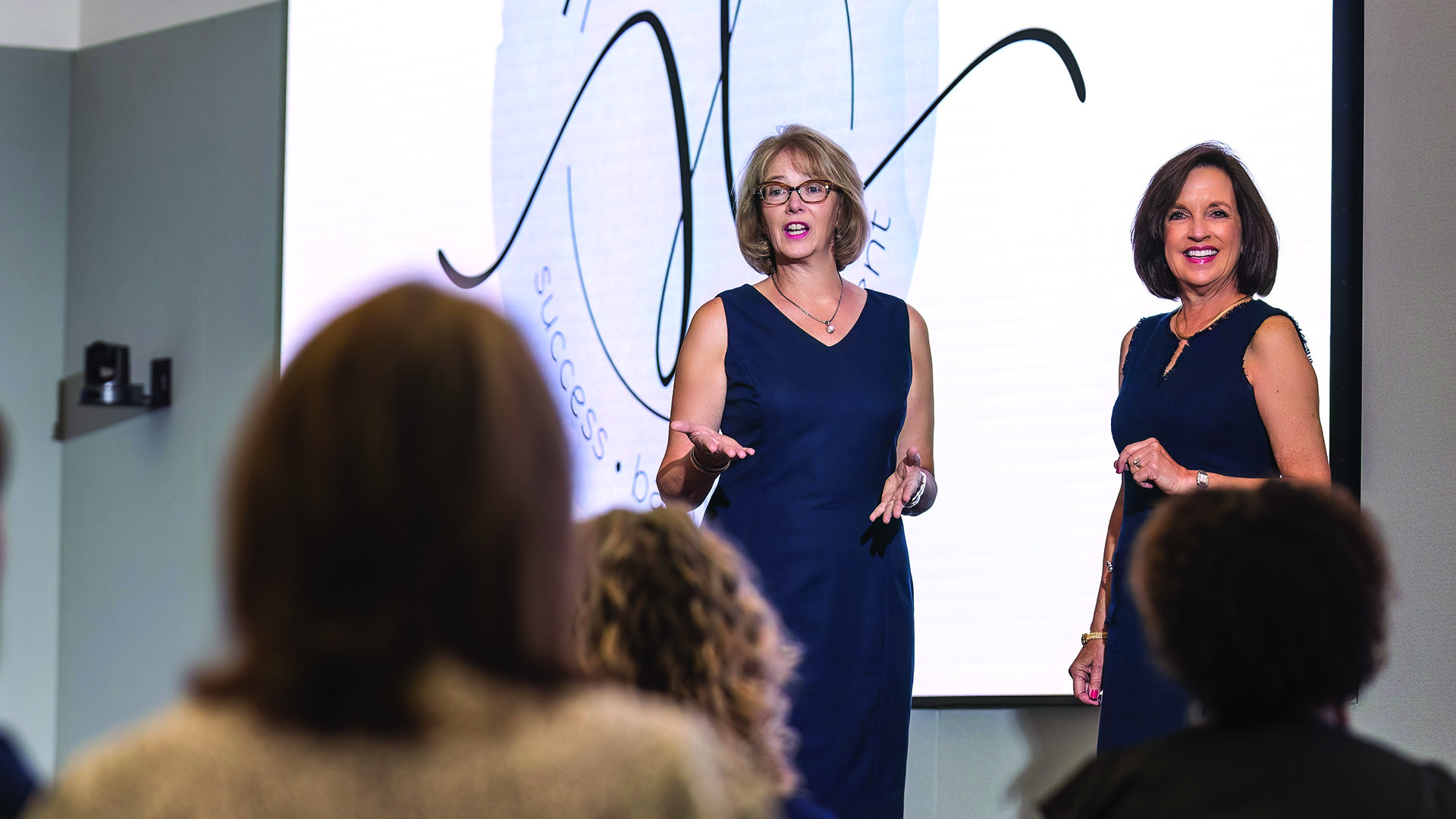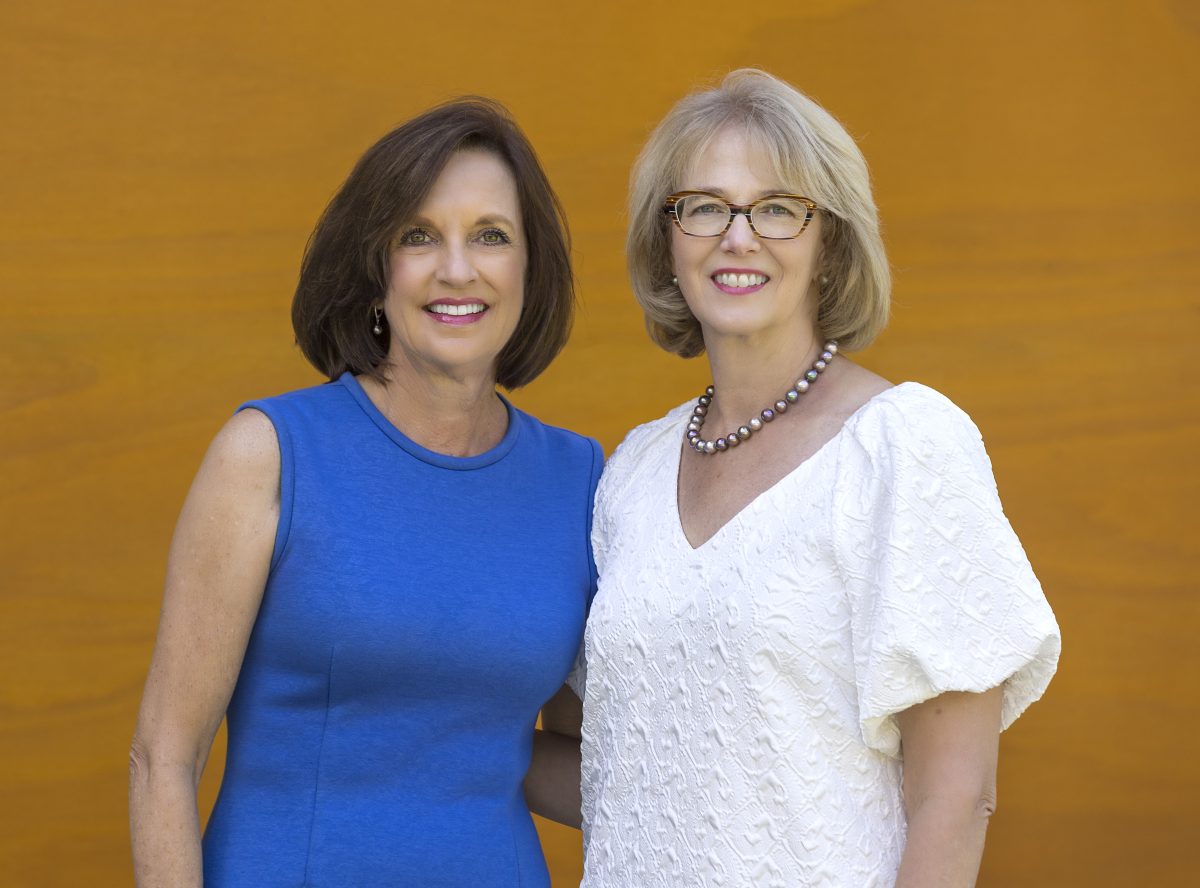
Healthy Organizational Culture Involves a Lot of Listening
Paula Brown Stafford and Lisa T. Grimes, co-founders and Managing Directors of Habergeon, weigh in on this month’s conversation around healthy organizational culture with examples of resisting conformity and utilizing active listening as leaders.
You can listen to this conversation with Paula and Lisa on our podcast, Work, Love, Pray! Listen below or click here to find your preferred listening platform.
Did either of you struggle with feeling like you had to conform to someone else’s idea of what a good employee should look like?
Lisa: I have two vivid examples of when this happened to me, and I really struggled. My first example was working at a company where there was such intense internal competition that I really didn’t have any energy left to compete with our actual competitors. The whole company culture was all about competing internally, and as hard as my team and I tried to compliment one another, it was not spreading throughout the company. So I left.
My second example was me jumping from the frying pan of that company and into the fire of a toxic work culture. That term ‘toxic work culture’ is used so often these days but was used less frequently many years ago. This company, as it turns out, did not value integrity, respect, or healthy communication, which were and continue to be core values of mine. Again, my managers and I tried to set a better example for our teams, but it was not going throughout the corporation, which led me to again make a job change and really pay a whole lot of attention to the culture that I was going to. I was finally able to go to a company that had cultural values were in alignment with my personal values, which meant there wasn’t an expectation for me to conform.
Paula: I had an experience very early on in my career of a manager actually telling me to be a chameleon. I’ll never forget her telling me that. I mean, I could appreciate that my manager had different personalities to oversee and we needed to all work together, but I just felt like that manager telling me how I needed to be was not being supportive and cognizant of my authentic self.
How does authenticity come into play when you’re talking about healthy organizational culture?
Paula: You have a choice. You can choose to be authentically you, or you can choose to be someone else, a fake. In our careers, we’ve all heard ‘fake it until you make it.’ That mindset might last for maybe one promotion, but you really need to be confident in you and not try to ‘fake it’ and be someone that you’re not. as you said.
A healthy culture really starts with great leaders. One of my favorite business books is Good to Great by Jim Collins. In this book, Jim teaches about the five levels of leadership. The Level Five leader displays a mixture of personal humility and indomitable will. I really believe that personal humility is us showing authentically who we are. In my leadership positions, I always strive to be a Level Five leader, and I think the only true the truest Level Five leaders was Jesus Christ.
Can communication be used to help someone stay true to themselves in their career?
Lisa: I could spend all day on this! Communication starts with self talk: the way we talk to ourselves. I don’t always talk to Paula the same way that I talk to myself. Too often, we can speak more harshly to ourselves than we do to others. I guess if I spoke to others the way I used to speak to myself, I probably wouldn’t have a whole lot of friends or business partners left! Learning to speak to ourselves with kindness, learning to put away the false narratives that we tell ourselves, and learning to just stop the negative self-talk is key. We have to silence that type of self-communication and speak truth to ourselves, because that is what overflows to those around us.
What we continually tell ourselves is what’s going to come out when we are bumped. Think of it like a cup spilling over. What we have going over in our minds is what’s going to spill out in our communications to others. Personally, I had to learn the art of intentionally listening. I often found myself too busy thinking about my response during a conversation instead of paying careful attention to what was being said to me. Listen fully first. That is a sign of a really good leader, and it’s a culture that I have tried to create with management teams. I’ve also found communicating with transparency will allow people to be understanding when, as CEO, you might have to withhold speaking on something publicly.
Communicate with clarity of purpose, making sure your words are consistent with your actions. We all need to remember the power of our words, over ourselves and over anyone that we come into contact with.

Paula Brown Stafford and Lisa T. Grimes are Co-Founders and Managing Directors of Habergeon, a boutique consulting company, and co-authors of the best-selling book, released in 2018, Remember Who You Are: Achieve Success. Create Balance. Experience Fulfillment.
Paula Brown Stafford served most recently as President, CEO and Chairman of Novan, Inc., a micro-cap pharmaceutical company. She has nearly 40 years of biopharmaceutical services and consulting experience, including sales and marketing. She spent over five years as President of the Clinical Development division of Quintiles (now IQVIA), a position with global responsibility for over 20,000 staff, following 25 years in multiple roles with increasing levels of responsibility. She received her bachelor’s and master’s degrees in Public Health, a certificate in International Executive training from INSEAD and completed the Looking Glass Experience at the Center for Creative Leadership. In 2012, she was selected as one of the Top 10 Women in Biopharma by Fiercebiotech. She serves on the Board of Alliance for Multi-specialty Research, Inc., and previously served on the Board of Directors at Health Decisions, a small CRO acquired by Premier Research. She is an Adjunct Professor in Public Health Leadership at UNC Chapel Hill Gillings School of Global Public Health and consults for biopharmaceutical and start up organizations. She and her husband have two adult children.
Lisa T. Grimes served most recently as the President & CEO of PurThread, a medical textile start-up. Lisa’s career has spanned sales, marketing, and executive management in healthcare and service industries. She began her career in sales at Beecham Pharmaceuticals and then moved into sales management roles at Glaxo (now GSK). Her first entrepreneurial experience was with PPDI where she led international business development and contracts. Since then, she has served as the CEO of several start-up companies including InSite Clinical Trials (an SMO for which she led the transformation to a full service CRO prior to selling it to United Healthcare, then served as its President) and AcSentient, an ophthalmology company, which she sold to ISTA. She spent a decade as an Executive Advisor to Campbell Alliance (now Syneos), a leading pharmaceutical management consulting firm. Lisa is a graduate of the School of Pharmacy at UNC-Chapel Hill, where she served as an Adjunct Professor, Associate Dean of the School of Pharmacy and on the School’s Foundation Board of Directors. She also has certificates in Strategic Marketing for Executives from Harvard and in Healthcare Administration from the University of Southern California. She and her husband have two adult children, daughter-in-law and new grandson.